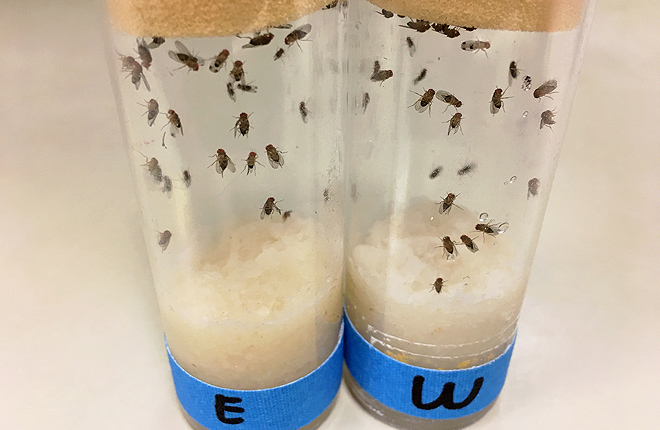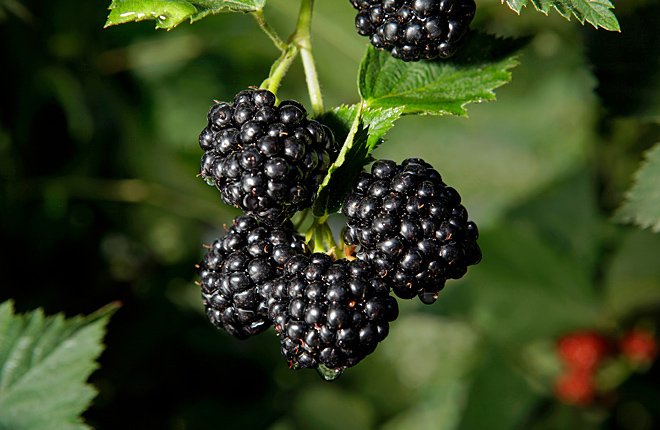Vinegar Fly’s Lethal Sweet Tooth
A novel control strategy could be in store for spotted wing drosophila, an invasive vinegar fly species from Asia that attacks more than 100 fruit crops, including blueberry, cherry, blackberry, and grape.
Two- to three-millimeters long, the spotted wing drosophila fly first drew attention in 2008 in California. Before long, it had spread to other western states, inflicting losses of 50 to 100 percent in berry crops there. Two years later, it had spread to the eastern United States, wreaking similar havoc and forcing growers to retaliate with intensive insecticide spraying.
Researchers, meanwhile, began learning all they could about the invader. One such scientist is Blair Sampson, an Agricultural Research Service (ARS) entomologist who specializes in integrated pest management approaches for small-fruit crops. Sampson is with the ARS Thad Cochran Southern Horticultural Laboratory in Poplarville, Mississippi.
In studies there, he and his colleagues showed that drosophila flies prefer the taste of a commercial sweetener called “erythritol” over sugar (sucrose) and that this preference can be exploited for control purposes. Erythritol is a naturally occurring sugar alcohol found in fruits such as pears, grapes, and melons. It is commercially produced by fermenting corn starches with a fungus.
Sampson first learned of erythritol from a popular-press article by Drexel University researchers. Curious, he decided to investigate further. Now, based on results from his latest round of field studies and a paper published in the September 2016 online issue of the Journal of Applied Entomology, Sampson sees this sweetener playing a potential role in targeting the spotted wing drosophila fly’s maggot stage, which causes the most harm to fruit crops.
After mating, female flies inject their eggs beneath the fruit’s skin. There, feeding by larvae that hatch from the eggs causes the fruit to soften, bruise, and wrinkle, opening it up to rot and ruining its marketability.
In field tests this past summer, however, spraying blueberry and blackberry plants with erythritol reduced larval numbers by 75 percent, greatly diminishing their potential to damage the fruit.
Sampson says a dosage of 61,000 parts per million (about half a pound per gallon) worked best and probably killed the larvae by drying them out. The fruits, however, were unaffected, he adds.
In related tests, progressively higher doses of erythritol shortened the life span of adult flies and killed them outright at the highest concentrations. But the cost of targeting adult drosophila with the sweetener was about four times that of using it to kill larvae ($452 versus $112 per acre, respectively).
One solution could be to add erythritol to a bait station as part of an “attract and kill” strategy. This could help reduce the material cost of controlling adult flies.—By Jan Suszkiw, ARS Office of Communications.
Key Facts
- Spotted wing drosophila flies are invasive pests from Asia.
- The flies attack over 100 fruit species and can ruin yields.
- Erythritol, a natural sweetener, can be used to control the pest.
- The sweetener is especially effective against fly larvae.
Full Story








